The future of the Southern Cameroons was decided during a debate at the United Nations General Assembly on 21 April 1961. This debate led to UN General Assembly Resolution 1608 (XV), which provided the international legal basis for ending trusteeship in the territory.
By Edwards Nyamkah, Victoria, Ambazonia
Both French Cameroun and British Southern Cameroons were once Class B United Nations Trust Territories, administered respectively by France and Britain after the Second World War.
The goal of the UN Trusteeship System was enshrined in the Trusteeship Agreements signed after the war. These agreements ensured that the administration of such territories by external powers or international organizations was carried out on behalf of the inhabitants, with a clear mandate to prepare the people for self-governance and independence.
To guarantee that this process was respected, the Trusteeship Council, one of the principal organs of the United Nations, was established to supervise the administration of these territories and ensure their path toward self-government and independence, in accordance with the principles of the UN Charter. These principles emphasized the political, economic, social, and educational advancement of the inhabitants.
Over time, every Class B Trust Territory attained independence, with the sole exception of the British Southern Cameroons.
Geopolitical Pressures and Economic Interests
In French Cameroun, France set 1 January 1960 as the date of independence.
Britain, however, had its own timetable for the Southern Cameroons.
At the same time, the then Prime Minister of Southern Cameroons, John Ngu Foncha, had become close to Kwame Nkrumah of Ghana, a figure associated with socialist ideas and ties to the Soviet Union.
Britain and its Western allies were alarmed. They feared losing control over oil interests in Nigeria and agricultural investments in the Southern Cameroons. They also wanted to prevent the spread of communist influence in West Africa.
To achieve this, they supported a group of so-called African Powers to oppose any potential breakup or balkanization of the region. This geopolitical dynamic created significant pressure on how the Southern Cameroons question would be handled internationally.
The Crucial United Nations Debate of 21 April 1961
The future of the Southern Cameroons was decided during a debate at the United Nations General Assembly on 21 April 1961. This debate led to UN General Assembly Resolution 1608 (XV), which provided the international legal basis for ending trusteeship in the territory.
In paragraphs 183–184 of the 994th Plenary Meeting of the 15th Session Official Records, France and its African allies proposed a union of the Southern Cameroons with the Republic of Cameroon into a Federal United Cameroon Republic, notably without granting independence to the Southern Cameroons first.
This proposal was rejected by acclamation, meaning the entire assembly voiced its opposition to handing the Southern Cameroons over to the Republic of Cameroun without first granting it independence.
Later, in paragraphs 197–198, a formal vote was held that granted independence to the Southern Cameroons, subject to tripartite negotiations between the British Southern Cameroons, the United Kingdom, and the Republic of Cameroon.
In this vote, France, its African allies (with the exception of Mali), and the Republic of Cameroun voted against independence for the Southern Cameroons, but they lost. The majority of the international community voted in favor of a tripartite federal arrangement, structured between Southern Cameroons, Great Britain, and Cameroun, as memorialized in UN General Assembly Resolution 1608 (XV).
A crucial fact often overlooked is that the Republic of Cameroun, already a UN member at the time, voted against independence for the Southern Cameroons during the 21 April 1961 debate and vote. In other words, newly independent states that had themselves benefited from the UN Trusteeship System actively tried to block the self-determination of another African Trust Territory. They lost in a free and transparent vote.
Federation Approved — Union Rejected
The position of the international community was unequivocal.
Federation was approved as the mechanism to end trusteeship.
Union was rejected.
Even France and its allies did not vote to support their own failed proposal after it was rejected.
This raises obvious questions.
If “reunification” was truly the shared goal, why did the world vote against it?
And why did Cameroun vote to deny independence to a territory it now claims it was “reuniting” with?
From Diplomatic Defeat to Military Action
In 1961, France and its allies lost diplomatically at the UN.
In the following decades, instead of respecting the outcome of the free vote, attempts were made to impose a different result through military force.
These efforts had two major consequences.
They met fierce Ambazonian resistance, making any quick military solution impossible.
They distracted the Republic of Cameroun from pursuing technological and economic development, keeping the country off the path of modernization.
Conclusion
The facts are written in official United Nations records.
What we witness today is not a correction of history, but an attempt by the Republic of Cameroun to use militarism to overturn an international decision made through free votes in 1961.
The consequences of this policy, driven by the Biya government, continue to shape the region today.
Ironically, it is the Ambazonian State Army (ASA) that, in the face of brutal repression by Cameroon’s security forces, finds itself defending international law, while Yaoundé openly violates it.
Edwards Nyamkah
Victoria, Ambazonia













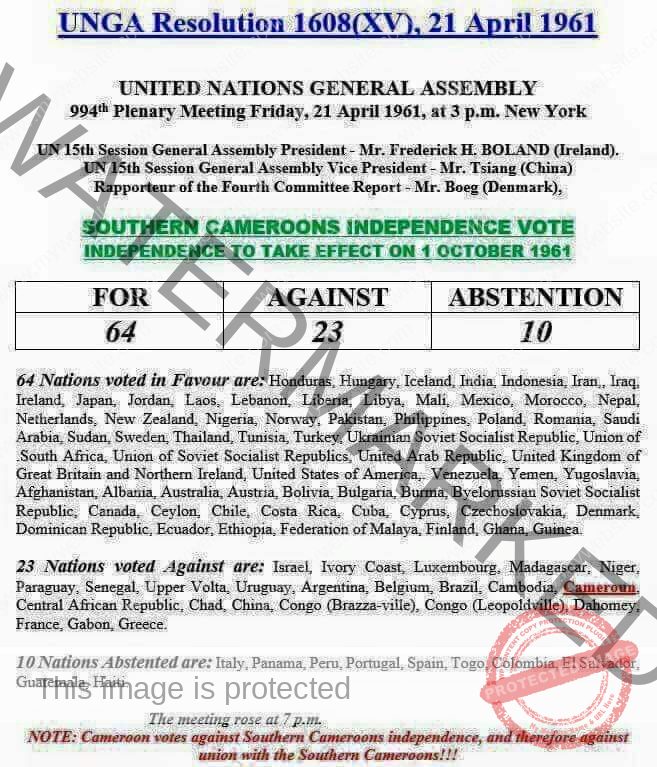
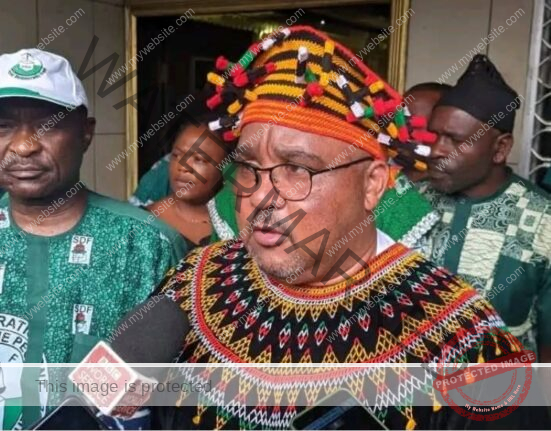
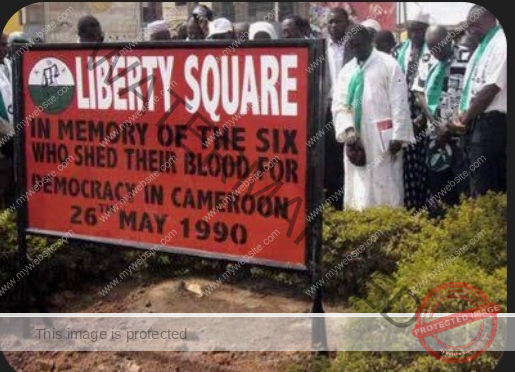


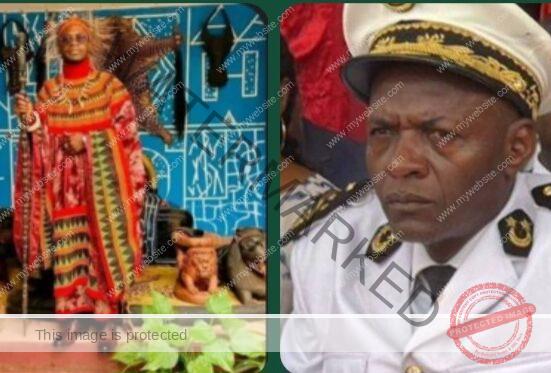
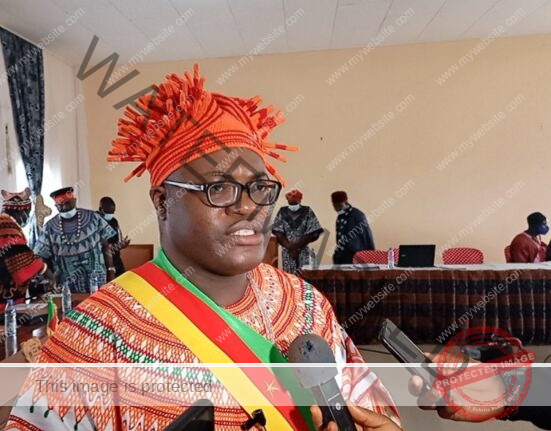

Leave feedback about this